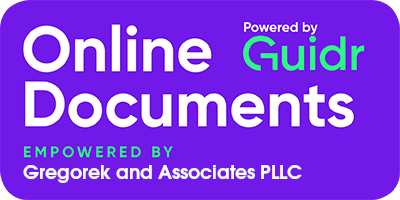Blog
Estate Plan Update After Receiving an Inheritance
Receiving any type of an inheritance is something that can come as a double edged sword. On the one hand, beneficiaries usually feel some type of sadness associated with the inheritance because it usually means that an individual that they loved can cared about has passed away. However, an inheritance can also be a life changing opportunity for that person in the sense that they may be able to have more financially flexibility. Regardless of if you fall into one or both categories, one of the first things that you should do after you receive this inheritance is a step that you should always take.
What Documents Should Be Part of Your Estate Plan?
There are many people who make the mistake of thinking that because they received this inheritance, the only documents that need to be part of their estate plan is a will. Just in case anything happens to that person, at least those left behind will know what your intentions are. Although this thinking goes in the right direction, it should never end there. Here are some examples of other documents you should always have as part of your estate plan:
• Financial Power of Attorney
In the event that you’re unable or unavailable to make your own decisions about your finances, a financial power of attorney will appoint a friend or a family member to do so on your behalf. There are some people who feel more comfortable putting together a financial power of attorney which comes into effect if they are deemed medically incapable of making these decisions while there are other people who have a financial power of attorney that goes into effect at that moment. The decision as to which one you would prefer is specific to you and your need.
• Medical Power of Attorney
What would happen if you were hurt and unable to make medical decisions? A medical power of attorney appoints an individual to make those decisions on your behalf. This is important because it many cases, hospitals and doctors will only talk to the individual that is named in this document about the care of the injured party. A good rule of thumb is to make sure that your doctor has a copy of this document.
• Living Will
A living will is a document that should not be confused with your Last Will & Testament. If you are in a situation where there is a strong likelihood that you will pass away, signing a living will will attest to the fact that you do not want any extraordinary means to keep you alive. Although you will be kept hydrated and comfortable and receive standard medical care, new forms of medicine will not be used to save your life. This is a topic of debate among many families so signing this document is something that should be considered by you very seriously.
It goes without saying that you should always have a Last Will & Testament in place as this will help to distribute your assets once you pass away.
Schedule Your Appointment Today to Discuss Your Estate Planning Options
When you’re ready to begin to put together an estate plan after you receive your inheritance, our team of estate planning experts are here to help you. When you work with us, you can always rest assured that we will go the extra mile so that you have the resources available to you to make the most out of your estate plan. Whether you need to update your current documents or you need to develop something new, our team will help you every step of the way. Get in touch with us today to learn more about your estate planning options.
